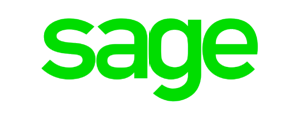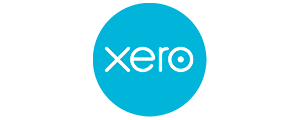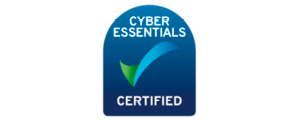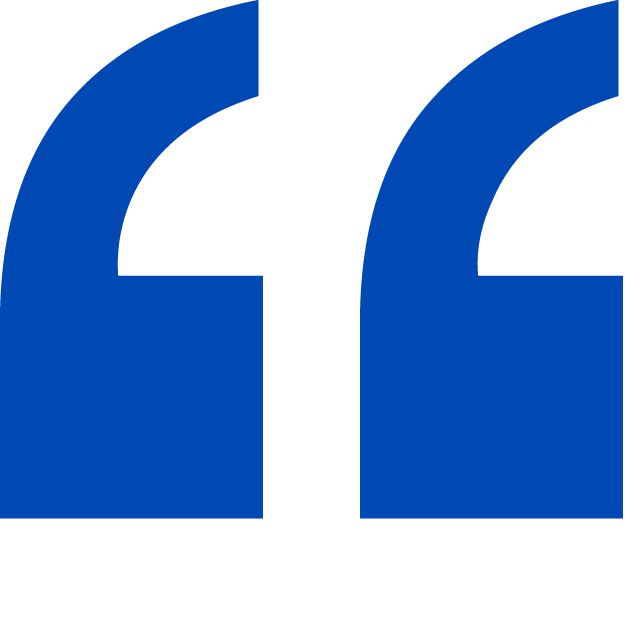When it comes to making payments, it’s important to choose the best method available for a specific transaction.
Whether it’s spare change for a mid-morning coffee or a recurring Direct Debit for your office utility bills, getting it right can save you time and hassle.
For time-sensitive, high-value transactions, CHAPS payments will likely be the best fit.
Here we explore what they are, how they work and when your business may need to use them.
What Are CHAPS Payments?
 Now you’ve decided you want to harness the power of Direct Debit, it’s time to research your options.
Now you’ve decided you want to harness the power of Direct Debit, it’s time to research your options.
CHAPS stands for the Clearing House Automated Payment System and has been in operation since 1984. Responsibility for its management transferred to the Bank of England in November 2017.
It’s a sterling same-day system used for high-value wholesale payments and time-critical lower value payments like paying a deposit on a property or buying a car.
Typically, they’re worth over £10,000 and can be settled immediately, making them the ideal choice for large and time-sensitive transfers. CHAPS guarantees same-day payment as long as the instructions are received by your bank by 2pm on a working day.
There’s no minimum payment, but because they’re expensive to process and therefore incur a fee of around £25, other methods such as Direct Debit or Bacs transfers are better suited to smaller amounts.
One of the largest high-value payments systems in the world, CHAPS has 30 direct participants which include traditional high street banks, along with international and custody banks.
Over 5,000 further financial institutions access the system indirectly and make CHAPS payments via the direct participants. Direct Debit facility offers a time-effective, cost-effective and simple solution for your business.
What Are CHAPS Payments Used For?
The CHAPS system is used by the financial industry, smaller businesses and individual consumers.
Namely:
- Financial institutions and large businesses to settle money market and foreign exchange transactions
- Corporates to make high-value and time-sensitive payments including those to suppliers or for paying taxes
- Solicitors and conveyancers to complete housing and other property transactions
- Individuals to buy high-value items such as a car or to pay a deposit on a house
 In the first half of 2019, the average daily volume of CHAPS payments stood at 192,158 and the average daily value was £330 billion. This was a decrease of 2.6% compared to January to June 2018.
In the first half of 2019, the average daily volume of CHAPS payments stood at 192,158 and the average daily value was £330 billion. This was a decrease of 2.6% compared to January to June 2018.
2018 was a record year for volumes which grew by 16.5% to 48.5 million, an average of 191,788 per day. However the total value transmitted declined by 0.7% to £83.5 trillion, an average of £330.1 billion each day.
March 29th 2018, the day before the four-day Easter break and the last working day of the quarter, saw a record 320,034 payments, worth £463bn, beating the 11-year volume record by around 38,000 (13%).
The all-time peak value day was on 20 December 2017 when £468 billion was settled in CHAPS.
Whether records are broken or not, the CHAPS system processes a phenomenal amount of money every day. In fact, it turns over the equivalent of the UK’s GDP every six working days. And ongoing steady growth in CHAPS volumes continues to exceed migration to alternative methods of payment.
How Does CHAPS Work?
The customer asks payment service provider A, the sending PSP, to make a CHAPS payment
PSP A creates and submits a CHAPS payment to SWIFT, the secure messaging network
The CHAPS settlement request goes to the Bank of England’s Real-Time Gross Settlement system which processes the request
PSP A debits the customer’s account and PSP B credits the receiving account
Settlement confirmation is sent to both PSP A and PSP B via SWIFT
The funds are received and the transfer is complete
The CHAPS system opens at 6am on each working day. Participants must be open to receive payments by 8am and must send them by 10am. CHAPS closes at 6pm for bank-to-bank payments.
Payments are completed via the following process:
- Bacs, the clearing service for Direct Debit, uses SUNs as a form of ID to keep a record of all corresponding transactions. It’s also used by banks to look up the name of the company to be included on the payers’ bank statements.
- If you sign up as a bureau client, you’ll already have your own bank-sponsored SUN. To acquire one of these, your company must prove its management expertise, financial health and contractual capacity.
- This approval allows you to become a direct submitter who can either manage Direct Debits in-house or outsource to one of the Direct Debit providers, enjoying lower processing fees.
- For businesses unable to meet the banks’ strict requirements, you’ll be provided with an SUN by your Direct Debit company which will enable you to start collecting payments straightaway via a facilities management, or managed, service.
- This is called submitting indirectly and frees you from the onerous task of gaining your bank’s approval and paying their high set-up fees.
- FastPay use unique SUNs for each Managed Service client, meaning that your business name and logo, rather than the impersonal name of your bureau, will appear on all documents including bank statements.
What Are the Benefits of CHAPS Payments?
Whatever payment method you use for different transactions, you want to be reassured that it’s fit for purpose.
With CHAPS, you’ll get these benefits for high-value, urgent transfers:
- Operated by the Bank of England, it is fundamentally secure and efficient.
- There’s no upper limit to the amount that can be paid making it ideal for large sums. There’s also no lower limit but because of the fees involved, it’s not typically used for smaller amounts.
- Payments are processed instantly when the CHAPS system is open between 6am-6pm Monday-Friday or within one working day when the instruction is received outside of these hours.
- Every payment is irrevocable, meaning it can’t be changed, reversed or recovered. This provides ultimate reassurance that the payment has been made as settlement risk is eliminated.
- Highly secure and resilient thanks to the Bank of England’s Real-Time Gross Settlement infrastructure and the SWIFT messaging network.
Understanding CHAPS Payments for Customers
ndirect participants access the CHAPS system through one of the direct participants based on a commercial and contractual arrangement. These indirect participants are made up of financial institutions who process transactions via agency arrangements with direct participants.
The direct participants, which include high street banks such as NatWest, Barclays and HSBC, make and receive payments on behalf of these indirect participants and other customers including businesses and individuals like you.
So if your business needs to purchase a new property, for example, you’d access the system through your bank, a direct participant.
While indirect participants typically pay around £2-3 per CHAPS payment up to a maximum of £30, end-users pay between £25 and £30 per transaction.
When the overall transfer totals several thousand pounds, it’s a small percentage to pay to guarantee a secure, efficient process.
CHAPS vs Faster Payments

ike CHAPS, the Faster Payments scheme is designed to speed up the process of sending money by clearing payments swiftly.
However, it has a £250,000 transaction limit so is better suited to smaller payments. It’s typically used to pay bills, online purchases and one-off lower-value transfers, as well as supplier invoices.
The Faster Payments scheme offers 24/7 near real-time payments between 21 UK bank and building societies. Accessible to 52 million account holders, it allows electronic payments to be made online, over the phone, in branch or through self-service kiosks.
With over nine billion Faster Payments made to date, Q2 of 2019 saw 594 million payments processed, a 19% increase from Q2 2018.
Their appeal lies in their speed and simplicity. One-off payments can be made quickly at the touch of a button. And because the system is available 24/7, unlike CHAPS, you’re not limited to making immediate payments within working hours. It also means your customers have the flexibility to pay you whenever it best suits them.
The service is also free, compared to the £25 fee associated with a CHAPS payment. And payment can even be sent without knowing the recipient’s bank details. Instead, the Paym system allows payment to be made to a mobile number, further increasing convenience.
CHAPS vs Bacs
The Bacs system also facilitates the transfer of funds between bank accounts but operates in significantly different ways to CHAPS.
Bacs is the organisation which oversees Direct Debit and Direct Credit. A Direct Debit is a flexible, secure method of collecting recurring payments with money transferred from one account to another on pre-agreed dates. Direct Credit, often referred to simply as Bacs, is the most commonly used way to pay salaries directly into bank accounts.
There are several differences between Bacs transfers and CHAPS payments. First, both Direct Debit and Direct Credit have a ‘set it and forget it’ functionality. Once a Direct Debit mandate has been completed authorising a business to take regular payments, the individual doesn’t need to take any more action. Like Faster Payments, CHAPS requires a separate transaction, and also an additional fee, each time a new payment is due.
There’s a difference in processing times too. While both CHAPS and Faster Payments permit real-time payment, Bacs transfers typically take three working days to clear.
CHAPS vs SWIFT Payment
The Society for Worldwide Interbank Financial Telecommunication (SWIFT) is a secure network that allows banks to communicate financial information securely. Used for international money transfers, it involves a series of banks working together to ensure your money ends up in the right place, wherever that may be in the world.
Unlike SWIFT payments, CHAPS transactions are limited to the UK. However they both involve fees. Transfer money using SWIFT and you could be facing a cost set by the bank, usually £25-40, plus fees set by intermediary banks or the recipient’s own bank, and a possible exchange rate mark-up.
Finally, SWIFT payments take on average between 3-5 days to process as the money works its way through numerous banking systems. This can increase depending on the location of the end bank account.
With an overview of how CHAPS, Faster Payments and Bacs transfers work, you can now make informed decisions on which one will best suit each transaction your business needs to make.
CHAPS is your ideal choice for when you want to make a high-value, time-sensitive payment. This closely regulated, secure system will ensure your transaction is completed accurately and promptly.












